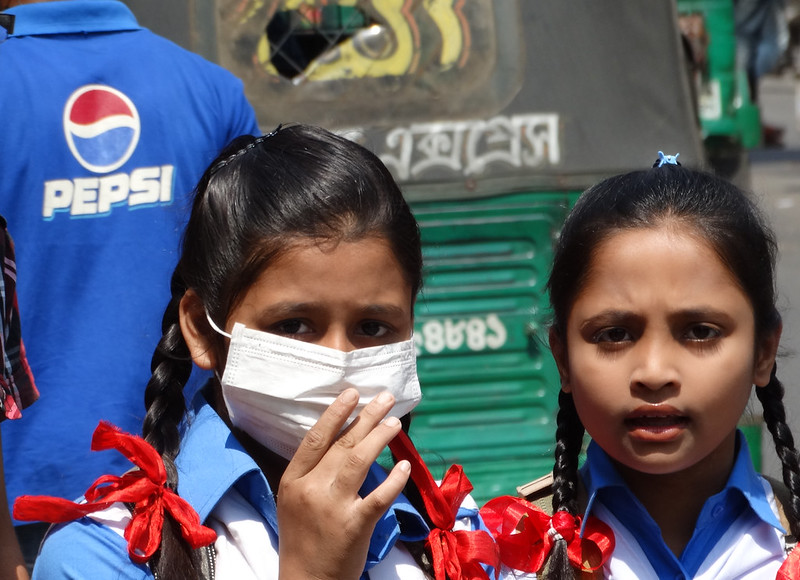Why Does Air Pollution Episodes Continue in Developed Countries
 It is common knowledge that countries, businesses and individuals would benefit the environment by reducing their own emissions. Reducing pollution will slow the rapid rate of climate change and could also significantly aid the health of the global population. In fact, on average, air pollution limits each person's life expectancy by two years. Experts estimate that air pollution is the "greatest risk to human health," and that the effects are even worse in less-developed areas. Here are five facts about the negative effects of pollution in developing countries.
It is common knowledge that countries, businesses and individuals would benefit the environment by reducing their own emissions. Reducing pollution will slow the rapid rate of climate change and could also significantly aid the health of the global population. In fact, on average, air pollution limits each person's life expectancy by two years. Experts estimate that air pollution is the "greatest risk to human health," and that the effects are even worse in less-developed areas. Here are five facts about the negative effects of pollution in developing countries.
5 Facts About the Negative Effects of Pollution in Developing Countries
- In Bangladesh, India, Nepal and Pakistan, air pollution cuts an average of five years off the lives of citizens. The number of people residing in these countries constitute about one-quarter of the global population. Pollution is 44% higher in these four countries today compared to 20 years ago. In some areas, air pollution can account for up to eight years cut from the average life expectancy. Bangladesh leads the way of these countries, with the worst pollution output in the world.
- Air pollution in cities is much worse than air pollution in other areas. Although this may seem obvious, the extent of the pollution level disparity between a city in a developed country and a city in a developing country is drastic. In developing nations, 98% of those in cities live in areas where pollution exceeds the WHO guidelines, while in developed nations, this number drops to 56%. Both of these numbers are too high, as experts estimate that these levels of pollution cause over three million deaths per year, but developing countries clearly have a much larger problem.
- Indoor air pollution causes 6% of all deaths in developing countries.This type of pollution is caused by the indoor burning of solid fuel for cooking and heating. Most of the reliance on solid fuels is for cooking, as many developing countries do not have the same clean cooking technology as more developed countries. Only 60% of the world has access to these clean fuels and technology. Although this number is slowly growing, 1.6 million deaths are still attributed to indoor pollution in developing countries each year.
- Air pollution negatively affects people throughout their life, beginning in their mother's womb and stretching into old age. As stated above, air pollution accounts for the loss of years at the end of life, but it also slows the development of children's lungs and could cause premature births. A study in California has connected higher particle pollution levels with increased early births. Even a short spike in air pollution can result in more preterm birth, which carries several health risks with it. Additionally, children's lungs are not completely grown until they reach adulthood, and air pollution slows this growth. Studies have shown that when lung growth is slowed, children's lungs may never grow to their full capacity.
- Studies show that poor air quality can increase the likelihood of contracting COVID-19. Furthermore, once the virus is caught, the lungs of those living in polluted areas are less able to adequately fight off the infection, causing higher death rates in countries with higher pollution percentages. A study found that a one microgram per cubic meter increase of fine particulate matter concentrations can cause an 8% increase in the COVID-19 death rate.
To combat the adverse effects of air pollution in developing countries, the world needs more government involvement and partnership regarding the issue. In order for developing countries to adequately reduce emissions, developed nations need to cooperate and enforce standards of air quality to promote health. These efforts will require intense dedication but are necessary to help protect the lives of nearly everyone on Earth.
– Aiden Farr
Photo: Flickr
fanninussighboult.blogspot.com
Source: https://borgenproject.org/pollution-in-developing-countries/
0 Response to "Why Does Air Pollution Episodes Continue in Developed Countries"
Postar um comentário